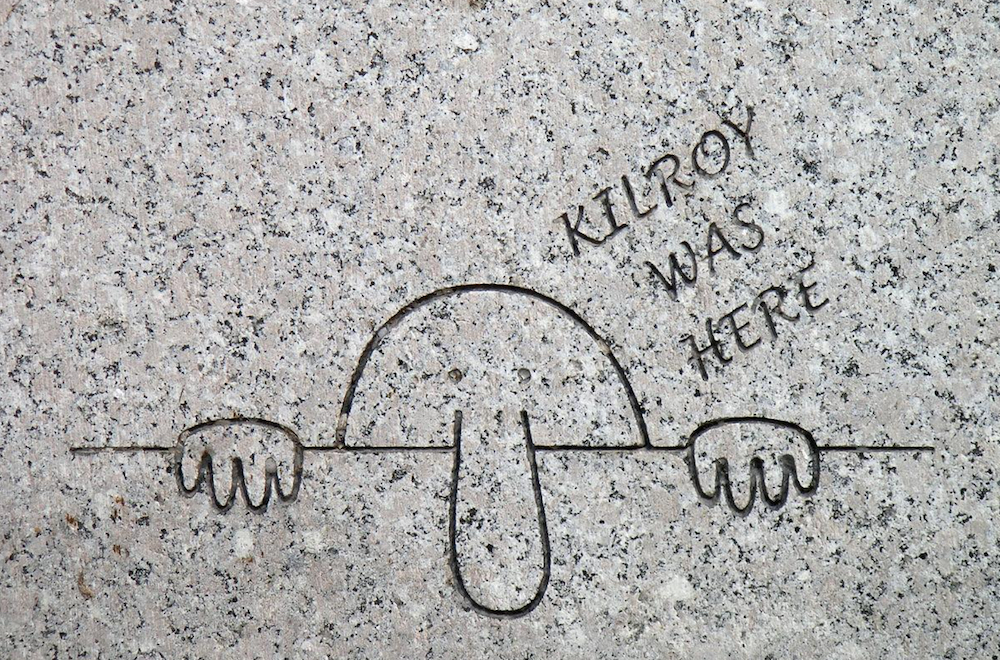Or the Strange and Ironical Case of Functional Living.

When it comes to self-science, nothing tries the limits of change theory like getting sick. Your head hurts. Your heart palpitates. Your body is hotter than any of its parts. And your brain finds itself locked out from processing even simple instructions like:
“Take two of these hundred-dollar pills and call me in the morning.”
According to the Cleveland Clinic’s Center for Functional Medicine, the proper aim of doctoring ought only to be patienting, defined as the holistic caring of the sum of each patient part. This sounds right. Awesome even. Who could ask for a more commonsensical take on health management? But given the team of specialists I have racked up over the years, which among them is going to manage my holistic, patient-centered, functional (and sometimes dysfunctional) body? Too self-helpy for my taste, especially given the sums involved? We’re talking real medicine. Not just comfrey tea and molasses. Meanwhile, the throbbing in my knee is making my hip hurt, my brain seize up, and my blood boil.
When I first met functional medicine magician Andy Wong, we immediately hit it off. My beach read that summer had been a primer on histamine intolerance—don’t joke—called Never Bet Against Occam. So when I dropped the name of that ancient philosopher, Andy was like,
“I can tell we’re going to have many fruitful conversations.”
Which we immediately did. But just an hour into our first one, Andy puts to me a train-wreck question I never expected to hear from a bonafide physician:
“So what do you think we should do here?”
“Qui, je?” I found myself wondering. (My brain reverts to bad French whenever it senses sloppy philosophy.)
“There is no ‘We,’” my inner Yoda shoots back.
“You’re the magician, man! What do you think we should do here?” I wanted to say for as much as I just paid for the hour. But instead of “We?,” all I managed was an unwhispered, “Wo!”
“I suppose,” I began—I couldn’t yet venture beyond the hypothetical—“I suppose it makes sense for me to play a role here.”
(Knowing chuckle from Andy.)
“As you undoubtedly know by now,” he finishes off with a conspiratorial wink, “it’s your body we’re talking about.”
Looking back, a condescendent practitioner might have said something clever like
“Patient, heal thyself.”
Or chummy like,
“You seem to be a smart guy…”
Or just plain ol’,
“That’s basically what functional medicine is, Scott.”
Instead, he simply asked,
“If not you, who?”
Twenty years earlier, I was in a leadership meeting at my local church.
(Friendship Alert: The following is not a story about religion but of a macroeconomic theory colliding with the natural world in what happened to be a faith-based setting.)
A leader from church headquarters is painting a picture across a rollable green chalkboard. He begins by sweeping a line across the years that shows what he calls the projected growth plate of young adults coming into the global church. The chalk line comfortably ascends a gradual slope for most of its existence. But as the coming century turns, the trend starts to tumble.
“This is the past” the beginning of the line calls out. “This bit here is the present.”
“And this is the problem,” the leader punctuates with his chalk, encircling the iminent descent.
As we take in the ‘problem,’ most of us collectively (and perhaps a bit too comfortably) sit wondering where the chalk talk will next transport us; the church leader drops from a great height what feels like a firebomb on every lazy worldview I’d ever formed till then about the connection between the many and the few. Let’s forever call it the Functional Religion paradigm grenade:
“What do you intend to do about it?” he asks.
“We” again. “Wo” again. Except this was decades before I met Andy. I can still trace my stream of unspoken consciousness as I wrapped my head around not the falling chalk line but the sheer nerve of the leader’s pressing me into some kind of mission.
“You’re talking about a cosmic phenomenon.” (My brain still manages to cling to English.) “You’re laying out a churchwide growth plate we locals have never had any reason to consider. We’re a small community of the rank and file living passively in the burbs, a day’s flight from church headquarters that a few generations ago would have taken months by covered wagon. With all due respect to Eiseley’s Star Thrower, what difference can any of us make to a multi-million-member juggernaut like a global church?
Decades later, around the time Dr. Wong put to me his train-wreck question, I was curious to know what became of that once-predicted “downward things happen here” line on the green chalkboard. To my by-then antithesis of amazement, the anticipated crash had somehow “self”-corrected. Instead of diving to start the century as we were put on notice that it would, the number of young adults coming into the global church since that day had only ascended. And without so much as a finger lift from moi.
How did it happen?
How does repairing the stomach bone heal the heart bone? How does the forced flight of a single starfish beget a dozen generations of sea stars? What have ‘I’ to do with my own body? And how does a single body figure into the calculus of la scène cosmique?
A few weeks beyond four centuries ago, word-magician John Donne penned a little ditty I have, since meeting Andy Wong (and getting some white-on-green religion about the power of one) adopted as a kind of personal mission statement. It’s about sand and sea; starfish and sore knees; ordinary communities and global civilizations. And while I’m loathe to throw in butterflies, I know you’re already seeing them.
No man is an island,
Entire of itself.
Each is a piece of the continent,
A part of the main.
If a clod be washed away by the sea,
Europe is the less.
As well as if a promontory were.
As well as if a manor of thine own
Or of thine friend’s were.
Each man’s death diminishes me,
For I am involved in mankind.
Therefore, send not to know
For whom the bell tolls,
It tolls for thee.
Whenever anyone poses a management problem, a family challenge, or a community dilemma, I no longer count on franglais to deflect what I used to consider a fruitless imponderable. Instead, the philosophy meter in my mind calls on Donne’s first draft of For Whom the Bell Tolls, written only a handful of weeks earlier than four hundred years ago. Call it archaeology. Or narcissism. A call to empathy. Or just dropping a new bomb on an old and uncritically assimilated worldview about the many and the few. But in such moments, here’s where Donne takes me. (Your personal mileage may vary.)
No man is an island, entire of itself.
Each is a piece of the continent, a part of the main.
If a clod be washed away by the sea…I am involved in mankind.
Therefore, send not to know for whom the [knell] tolls,
It tolls for thee.
This post is from a LinkedIn Newsletter called The Indirections. Subscribe on LinkedIn



“If I am not for myself, who is for me? And if I am only for myself, what am I? And if not now, when?”
“Do not judge your friend until you have stood in his place, and do not believe in yourself until the day you die.”